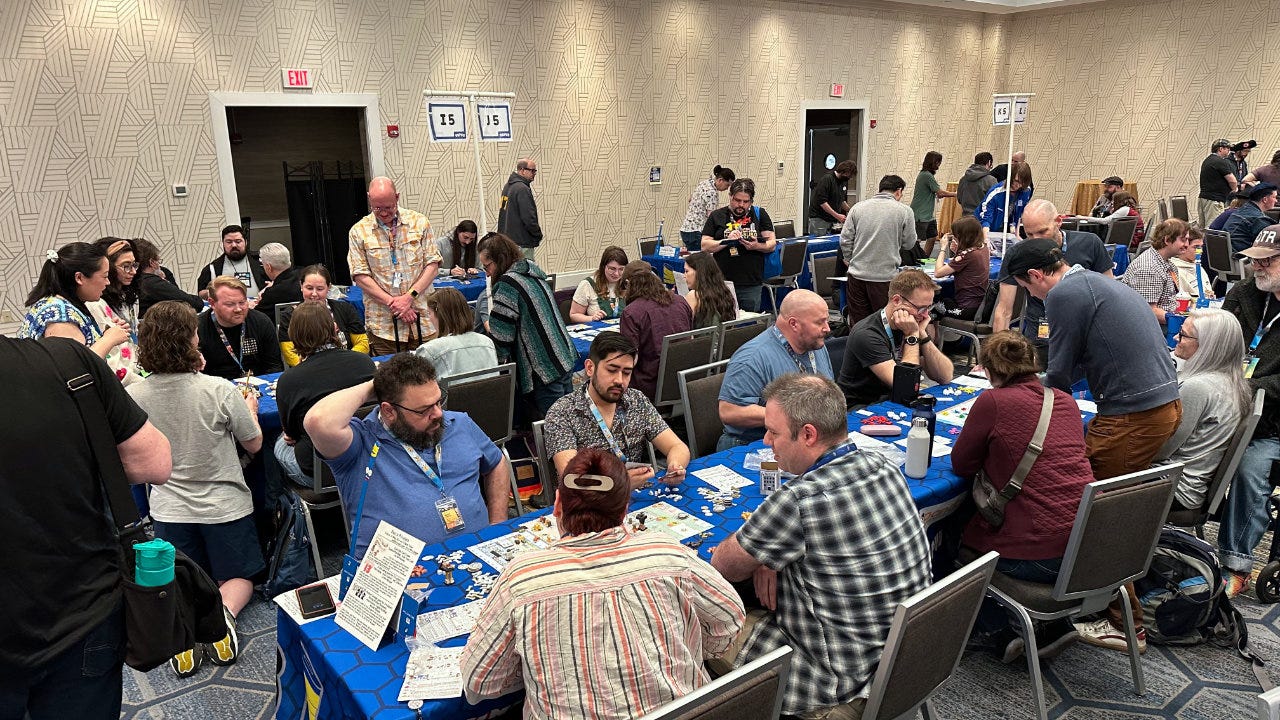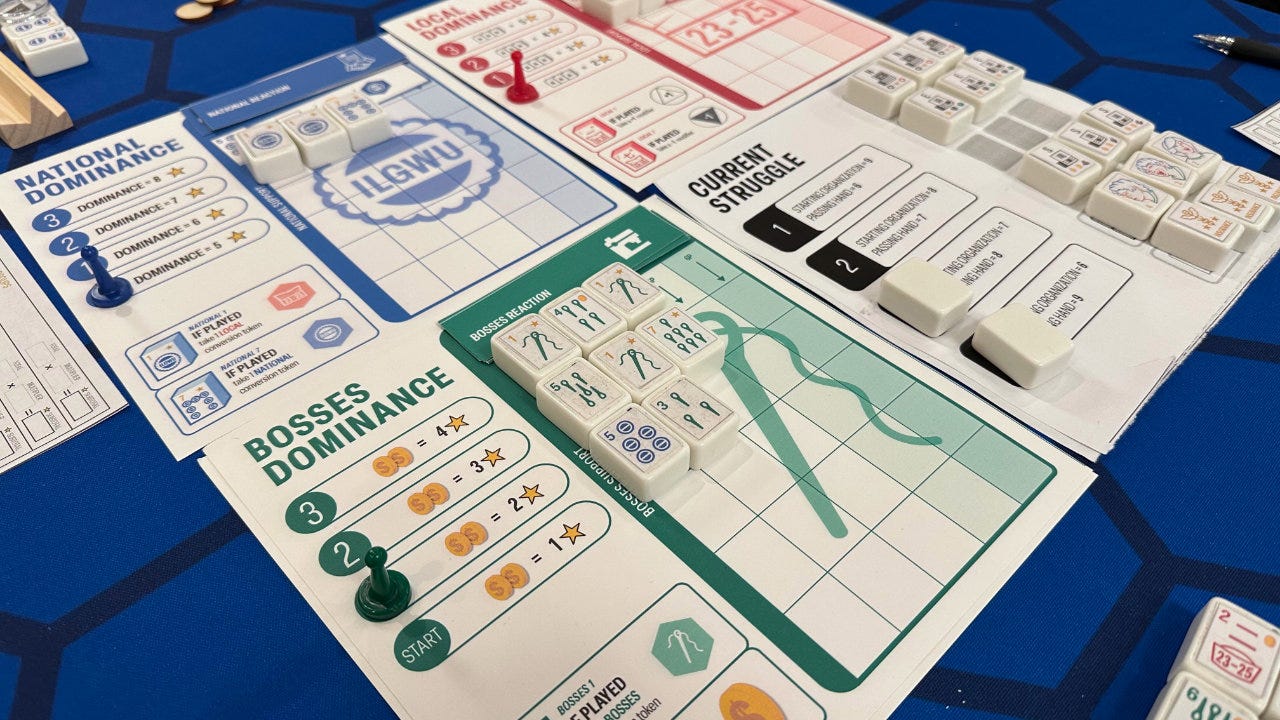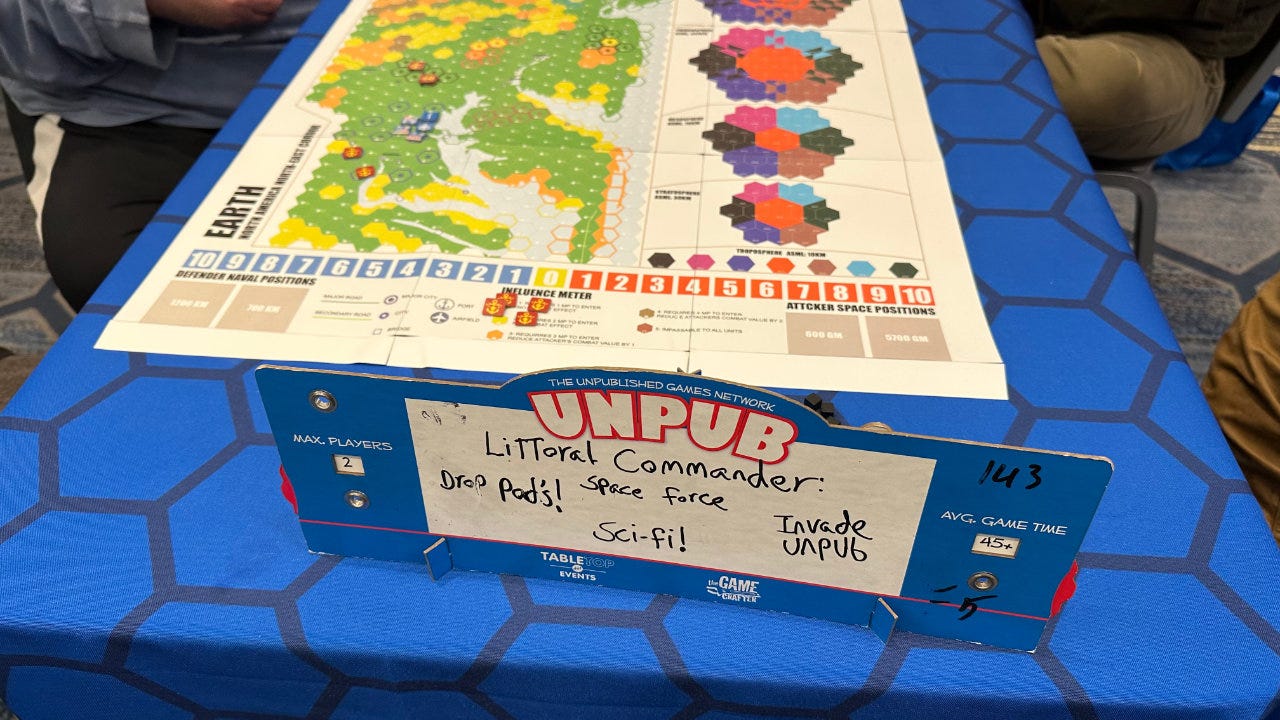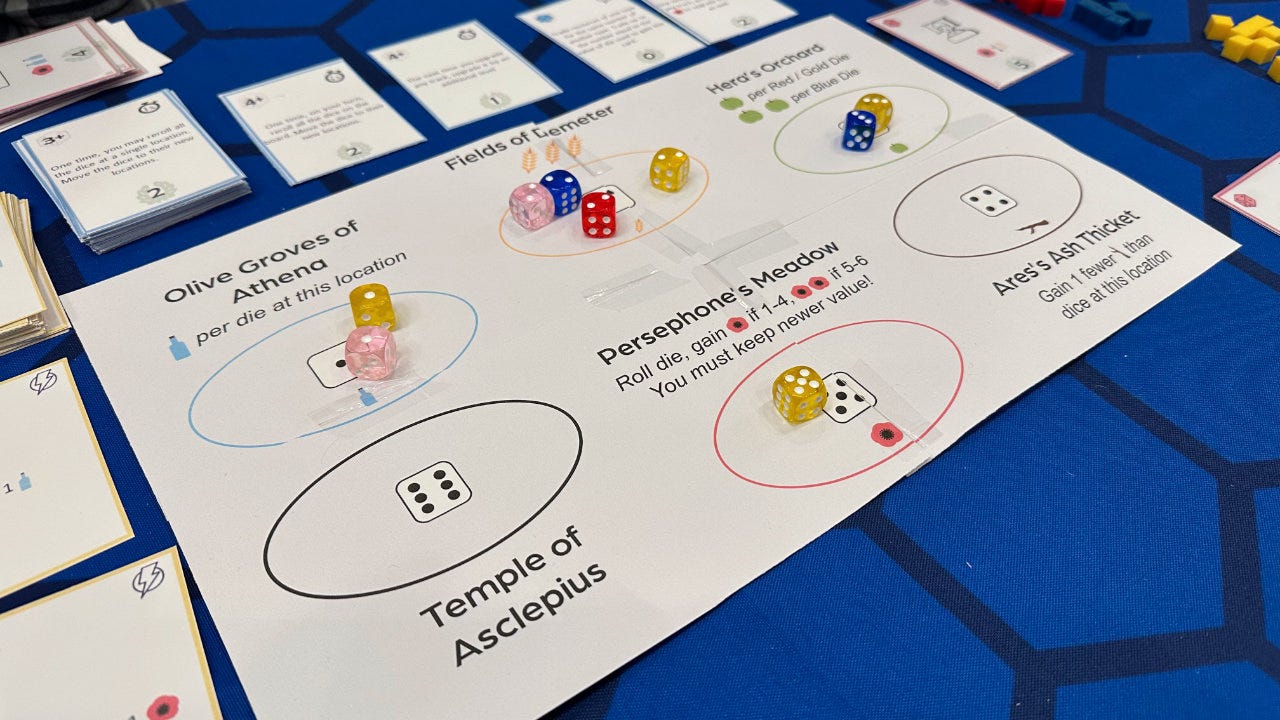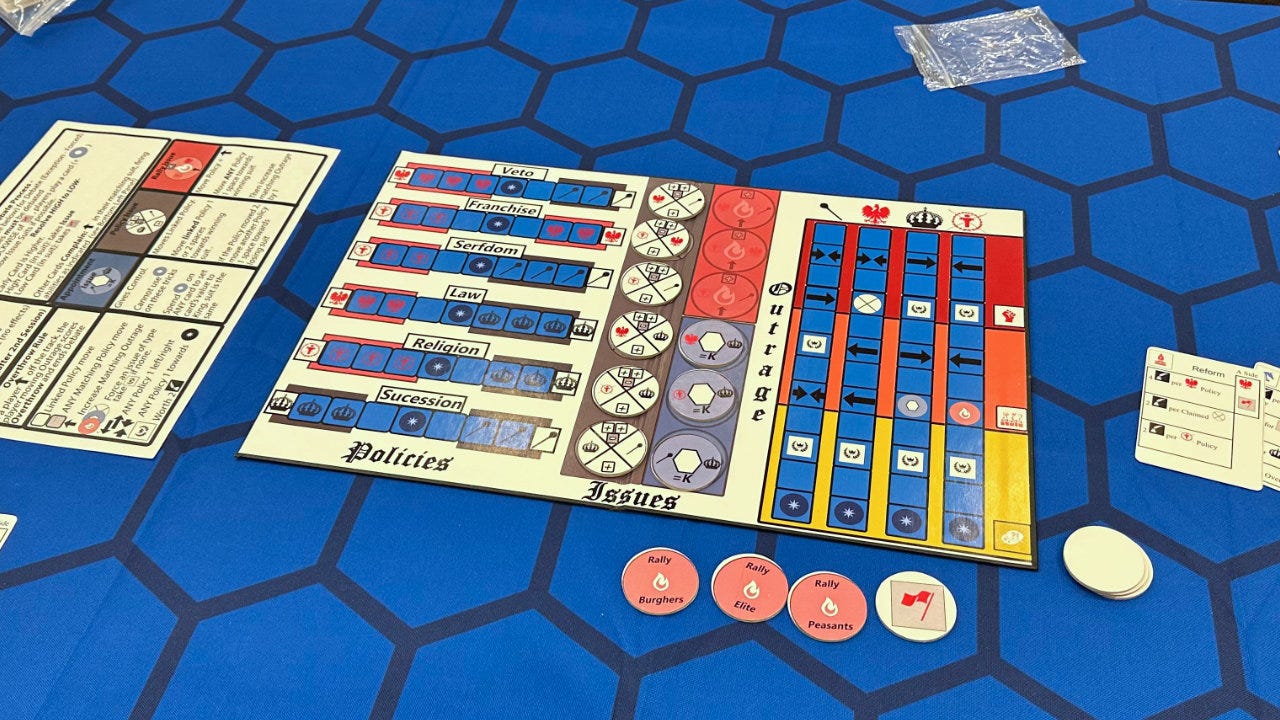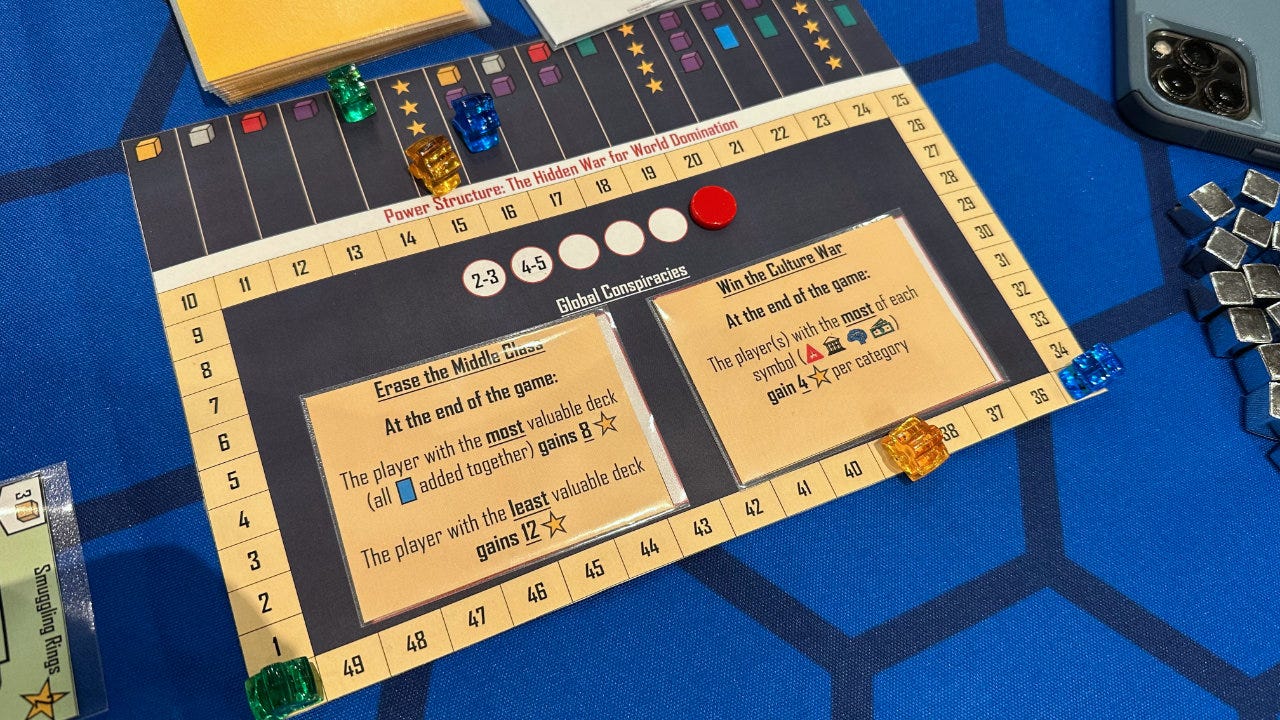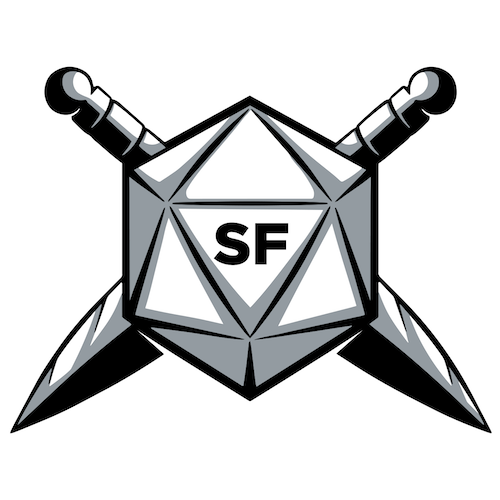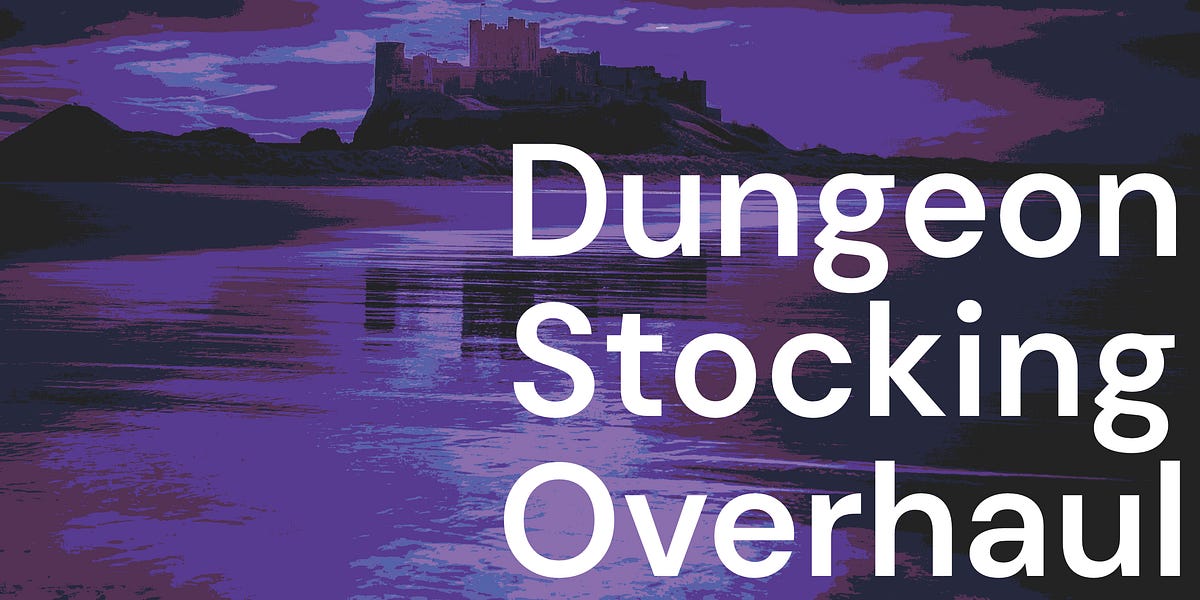SMOOSH JUICE
Don’t ask these playtesting questions!
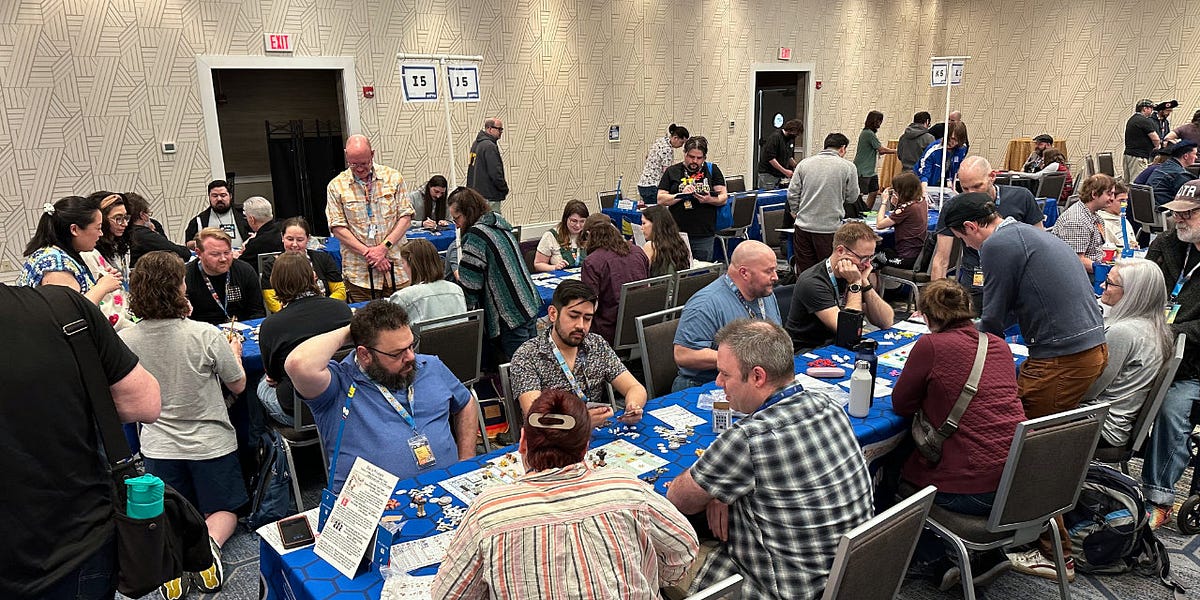
Welcome to Skeleton Code Machine, an ENNIE-nominated and award-winning weekly publication that explores tabletop game mechanisms. Check out Public Domain Art and Fragile Games to get started. Subscribe to TUMULUS to get more design inspiration delivered to your door each quarter!
Last week we explored How to Pitch Your Game at Unpub, giving 10 ways to improve your pitch. At the end of the article, I asked which topic you’d like to hear about next. The winner was “effective playtesting” with 59%.1 This makes sense as it can be a confusing topic with lots of conflicting information online.
This week we are looking at 10 questions you should ask, and 3 questions you should avoid when playtesting.
In the hectic atmosphere of Unpub you may only have just a few minutes to ask questions of multiple players. Some players have a lot to say and may try to dominate the feedback time, giving you less time to ask questions.
What if you only have time to ask one question? Which questions are the most valuable? It’s tough!
If you have limited time and can only ask a few questions, start with the first three (⭐) and skip the rest. If you have more time, ask as many as make sense.
Questions to ask:
It’s hard to get good, meaningful playtest feedback if the players are unsure how to play the game. The first barrier to testing is making sure the players know how to play and are comfortable making choices. This is a good test of the game rules explanation.
Even if the game wasn’t the player’s favorite kind of fun, they will still probably have a part that they enjoyed the most. Combined with the next question and given enough playtests, you can start to identify the strongest and weakest parts of your game.
This could also be rephrased to ask if they felt any areas of the game were boring, frustrating, or seemed to take too long. If the designer is running the playtesting, the players may not want to use negative terms (i.e. “boring”) to describe the game. Asking about a least favorite part might make it easier for them, because presumably everyone has a least favorite part if they had to pick one.
It can be tough to explain concepts like player agency and choice to playtesters who are not game designers. Most players, however, know the feeling of when their actions made a difference in the game vs. when they didn’t. If the game ends and they aren’t sure what they would have done differently… you might have a problem.
This question applies more to games with multiple interconnected subsystems and point salad type games.2 How you use this information depends on what type of feedback you receive. Everyone might report the same feature, which is good if that’s a feature you wanted to be important. Alternatively, the results might be split between to different areas.
As with the question above, this is for games with multiple systems. It can provide insights into areas of the game that can be stripped down or even removed. If there is, for example, a way to gain points or action that no one seems to value, consider removing it in a future revision. At a minimum ask yourself how that part of the game supports the core concept.
How this question is exactly phrased depends on your game (e.g. actions, spaces, moves, etc.). The idea is to ask about balance without asking directly if the game is balanced. Players can indicate if they found one way to play the game stronger than others, pointing you in the direction of a potential balance issue.
Having player agency in a game is important to me as a designer.3 If players report that they are unsure what they would (or could) do differently in subsequent plays, it might indicate that there isn’t enough player choice in the game. Even if they enjoyed the game, lack of different paths to victory could negatively impact replayability.
One of the designers at Unpub asked me this question, and I thought it was a really interesting one. While the response would be highly dependent on the playtesters game design knowledge, it is still valuable feedback. It’s a good way to test if the player’s concept of the game matches your concept of the game. This is less important in later stages of development, but could be invaluable at early stages.
I’ve seen this question in multiple places online, but The Board Game Design Course has perhaps the best explanation of why to ask it:
If players say “30 minutes” and they had actually been playing for 45 minutes or longer, this is a good sign. They say that time flies when you’re having fun, so if they felt the game was shorter than it actually was, this can be a good sign.
That’s a really interesting way to use the perception of time as a heuristic to determine if the player had fun or not! Love this one.
Knowing what to ask is important, but so is knowing what not to ask after a playtest. At high level, simply avoid asking “yes or no” questions. Beyond that, here are three specific questions that are probably not helpful:
I’ve read conflicting information online about whether or not asking this question (or variants such as “Did you have fun?”) is useful. Considering that there are many kinds of fun and many types of players, I don’t believe this question is useful. You could have a great game for the right kind of player, and someone else might not have fun with it at all. Take a highly competitive player who loves deck-building combos and put them in a cozy multi-victor game with zero-player interaction and they probably won’t have fun. That has no bearing on if the game is good or not.
Unless you are doing repeated plays (vs. a single, first-play test), it is going to be extremely hard for a player to know how balanced a game might be. Without some experience in game design, they might confuse losing/winning with balance issues. Some of the questions above (Q. 7) hint at balance without asking directly.
This question might be OK if you are only playtesting with other experienced designers, but probably isn’t good for general testing.4 It also leads to people suggesting how they would make the game more like ones they enjoy (e.g. “This needs more dice rolling!”) vs. adhering to your personal vision and concept.5
Energized by my recent experience at Unpub 2025, my goal is to playtest one of my games at Unpub 2026. I have two potential designs, one of which I’ve already tested with close friends.
My plan is to write down what I’ve learned from Unpub and other sources, organize my thoughts, and create some simple checklists for myself. Then, when I’m preparing for Unpub a year from now, I just pull the lists and I’m ready to go!
Is this something that would be useful for you too? If you’d like, I can format a Pitch Guide and a Playtest Guide to share as a PDF. Would probably be a checklist.
Some things to think about:
-
Playtesting is complicated: There are so many other facets of playtesting that I did not cover in this article! To optimize your playtests you should also learn about: guided vs. unguided testing, in-person vs. digital/remote, internal vs. external, or first-play vs. repeat testing. Knowing the right questions to ask is just one tiny step in the right direction.
-
Plan ahead and write them down: It’s hard to remember what you wanted to ask when also managing a playtest, fiddling with a prototype, and adhering to a schedule. Offload that work to a sheet of paper. Write down your selected questions in a list from most important to least important. Use the list to make sure the most important get asked, and hit the other ones if you have time.
-
Some is better than none: Asking suboptimal questions is still better than asking no questions. I attended a playtest recently where the designer said they didn’t have any questions for us because they saw everything they needed while we played. This can leave players feeling disengaged, especially if they wanted to share their experience. Ask questions!
This is part of a series related to my experience at Unpub in Baltimore. It begins with some lessons learned on how to pitch a game:
— E.P. 💀
P.S. The Adventure! prints are scheduled to arrive this week! Once they arrive and confirmed to be good, your chance to get the pre-order bundle will end. You’ll be able to order the book, but without the example adventures included.
Skeleton Code Machine is a production of Exeunt Press. All previous posts are in the Archive on the web. Subscribe to TUMULUS to get more design inspiration. If you want to see what else is happening at Exeunt Press, check out the Exeunt Omnes newsletter.

